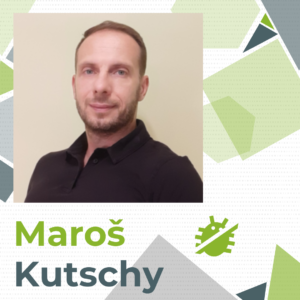
Maroš is QA Technical Lead at Ness Košice, Slovakia. His hobby is automation testing, he is specialized in Java Selenium Cucumber framework. He likes leading and mentoring colleagues, learning new automation testing framework and helping people to enter the world of testing. In 2022 he was speaking at ‚Testing United‘ in Prague, ‚Nordic Testing Days‘ in Tallinn, ‚Tacon‘ in Leipzig, ‚HUSTEF‘ in Budapest, and ‚Test Dive‘ in Cracow. In 2023 he was speaking at ‚Software Quality Days‘ in Munich, ‚HalfStack‘ in Vienna, ‚SEETEST‘ in Bucharest and ‚SANAE BEER.EX‘ in Bratislava. He likes self-improvement and leadership books, stoic philosophy, and exercising in the gym. You can find out more on his LinkedIn profile.
In his work, Maroš struggled with an everyday task to filter and analyze the root cause of all test failures (bug or improvement in the application / problem in the test / problem in the test environment / problem in test data) along with the subsequent action to make the test pass the next day. Each day he took the list of failures from the previous day and compared it with the list of failures from the current day and verified if failing tests were failing with the same stack trace as the day before. He also needed to know the root cause of the previous day’s failures and verify if the related Jira tickets were fixed. Doing all these tasks manually could be very challenging and ineffective, so Maroš was wondering if there exists any tool, which can do automatic analysis using artificial intelligence and machine learning. He found such tool: ReportPortal.io (RP).
In his talk „Artificial Intelligence in Analysis of Automation Tests Results“ Maroš would like to share his personal story with RP. It started as a proof of concept (POC) on his laptop: he installed RP, connected RP to his own automation framework (Java/Selenium/Cucumber), tested public web pages, and started sending results from the framework to RP. He shared the positive feedback at work. He gained the interest of his managers and did a second POC on the automation framework at work testing their own application. POC was successful and a pilot phase started using RP in 3 teams. After gathering relevant feedback and a lot of discussions, they finally started to use RP in all teams. Since then, AI and machine learning have been helping them with the analysis of automation test results.